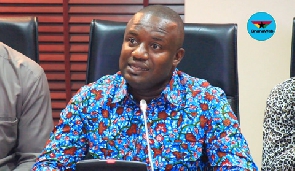The impact of last Thursday’s legal upset in the famous Tsatsu Tsikata versus The Republic case has begun to dawn on the nation, as famously as the judgement in the famous Apaloo versus AGC case which sent stocks tumbling and investors scurrying to dump AGC shares.
Mr Sam Okudzeto, one of the legal juggernauts in the country and past President of the Ghana Bar Association (GBA) painted a picture of gloom and doom when he pointed out that the ruling could send potential investors revising their plans for Ghana.
The country’s legal environment, infamous for delays would not be helped by such a decision as investors would have a sense that legal disputes could still get mired in the courts for years as has been the case, and investors would be less enthusiastic about such a prospect at this time when the donor community has been helping with the infrastructure to aid with the speedy disposal of cases. The Fast Track Court system is the fastest in the disposal of cases, including commercial cases.
Okudzeto explained that huge sums had been pumped into court modernization and computerization, and the judgement would be telegraphing the point that the country is not interested in moving forward in the development of the Judiciary. Consequently, grants and other forms of aid from the donor community towards the development of the court system would not be forthcoming. “This amounts to throwing out of gear the whole computerization process,” Okudzeto lamented adding that the judgement should not be seen as a victory for anybody.”
More ominously is the revelation that the other downside of the judgement is the possible overturning of civil cases with the potentially crushing impact. Cases have been disposed of where parties have recovered properties, received payments, paid fines, taken possession of assets, have had assets sequestered on the orders of the courts.
The renowned lawyer was speaking on a panel discussion on Breakfast Television last Saturday. One of the panelists, Mr Kweku Baako, editor of The Crusading Guide revealed that some of the judges had had briefings on the compurterisation process in the courts and had even gone to support the process. He recalled also that some of them had also appeared as witnesses in the Selormey case where they gave testimonies and expressed disappointment with the judgement.
Both Messrs Kwesi Pratt and Egbert Faibille, Editors of the Weekly Insight and The Independent respectively, also appeared on the panel and held differing opinions on the subject. In the opinion of the only lawyer on the panel, Okudzeto, the failure of the judges to give reasons for their judgement has created more confusion, adding that if they haven’t written their judgements yet they have an opportunity.”
In a related matter, the issue of extremely slow nature the wheels of justice grinds in the law courts has been attributed to the phenomenon of judges taking notes by long hand. The mechanization of the courts is seen as one way out of ensuring a speedy resolution of justice.
One panelist, Mrs Margaret Amoakohene, pointedly made the much touted point that “Justice delayed is justice denied in supporting the argument on the prudence of the Fast Track Court, now abolished by the famous ruling since the mechanical recording of proceedings and equally fast production of court transcripts enhance speedy resolution of legal cases.
General News of Monday, 4 March 2002
Source: Ghanaian Chronicle
















